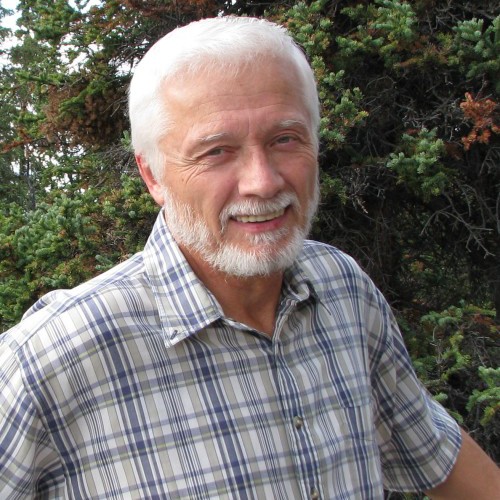Bruce Downie
About
 Bruce Downie is a consultant in conservation and protected areas planning and associated recreation, education and tourism activities. His professional experience includes planning positions with Parks Canada and the parks agencies of Ontario, BC and Yukon. Bruce extended that experience to a development context in Africa in the early 1990s and lived and worked in Tanzania between 2000 and 2006. During that time, Bruce was also a founding director of the Kesho Trust a Canadian charitable organization that works to integrate conservation and community development in Eastern and Southern Africa. He has been responsible for the development of the Africa programs of the organization since its establishment in 2005. He recently received his PhD through the University of Victoria and his research focused on the interface of community development, tourism and conservation as experienced in Tanzania’s Saadani National Park, and its surrounding communities. Bruce is a member of the IUCN’s World Commission on Protected Areas and the Commission on Environmental, Economic and Social Policy. He also holds an appointment as an Adjunct Assistant Professor at the University of Victoria.
Bruce Downie is a consultant in conservation and protected areas planning and associated recreation, education and tourism activities. His professional experience includes planning positions with Parks Canada and the parks agencies of Ontario, BC and Yukon. Bruce extended that experience to a development context in Africa in the early 1990s and lived and worked in Tanzania between 2000 and 2006. During that time, Bruce was also a founding director of the Kesho Trust a Canadian charitable organization that works to integrate conservation and community development in Eastern and Southern Africa. He has been responsible for the development of the Africa programs of the organization since its establishment in 2005. He recently received his PhD through the University of Victoria and his research focused on the interface of community development, tourism and conservation as experienced in Tanzania’s Saadani National Park, and its surrounding communities. Bruce is a member of the IUCN’s World Commission on Protected Areas and the Commission on Environmental, Economic and Social Policy. He also holds an appointment as an Adjunct Assistant Professor at the University of Victoria.
Place
Saadani National Park (1,100 km2 in area) is the only coastal park in Tanzania and includes a turtle nesting beach and a marine component. The park was gazetted in 2005 after a long process of land assembly affecting many of the surrounding 17 villages. Local people in the coastal villages are highly dependent on ocean resources for their livelihood and the inland villages depend largely on subsistence agriculture. Increasing population, land speculation and expansion of agricultural land has intensified land use conflict pressures around the park including the deforestation activities associated with charcoal production. The marine component of the park was also contentious as it withdrew from use a reef and island complex that served as a prime fishing area for local people.
During the process of land assembly for park many local people were moved out of the park or gave up village lands or lands and resources used for subsistence activities with the promise of access to benefits from park conservation activities including jobs and income from tourism. There is a strong feeling that the negotiated promises have not been fulfilled and that they are not adequately benefiting from the park. As a result relations with Saadani Park have been exceedingly strained.
Research
The Kesho Trust participated in the Protected Areas and Poverty Reduction Research Alliance (PAPR) and proposed the Saadani area as a study area. Through the work undertaken in that program an initiative called Promoting Environmental Conservation and Cooperation (PECC) was developed, focusing on three elements of change: the relationship between conservation and community development and livelihoods; the role of communities in conservation; and improved access to community benefits from the park. There has been significant progress and relationships are improving.
In September of 2015 an IUCN representative visited the project to develop documentation of the project as a case study for the Panorama website which highlights solutions to protected area issues around the world. The case study can be found here.
Key Publications
- Downie, B.K. (in press). Resolving conservation and community conflict: a Tanzania case study. Policy Matters. IUCN/CEESP.
- Downie, B.K. (2015). Conservation influences on livelihood decision-making: a case study from Saadani National Park, Tanzania. (PhD). University of Victoria, Victoria, BC. Canada.
The Kesho Trust
The Kesho Trust works to facilitate and support community led activities that foster positive relationships between local communities and their natural environment and help safeguard the biodiversity around protected areas. Relationships between protected areas and local communities frequently suffer from a lack of mutual understanding and collaborative efforts to resolve issues. The Kesho Trust recognizes and works to improve this important interface. In doing so, we place a high priority on environmental education along with expanding environmentally compatible livelihood options and enterprises. These priorities focus on: improving the efficiency of land and natural resource utilization primarily related to agriculture and water supply; building effective community based natural resource governance mechanisms; and, supporting community based tourism.
Our primary geographical focus currently is Tanzania, specifically in the coastal area north of Dar es Salaam around Saadani National Park and along the northern border with Kenya in partnership with a local Maasai organization. The Saadani area has been a long standing commitment where we have undertaken research to support our community engagement programs which are aimed at building better relationships between the park and local communities and expanding livelihood options that will improve the well-being of community people.
We are a Canadian charitable organisation established in 2005. Strong connections in Tanzania led to the establishment of our first overseas program in 2006 when we registered Kesho Trust (Tz) as a local NGO.


